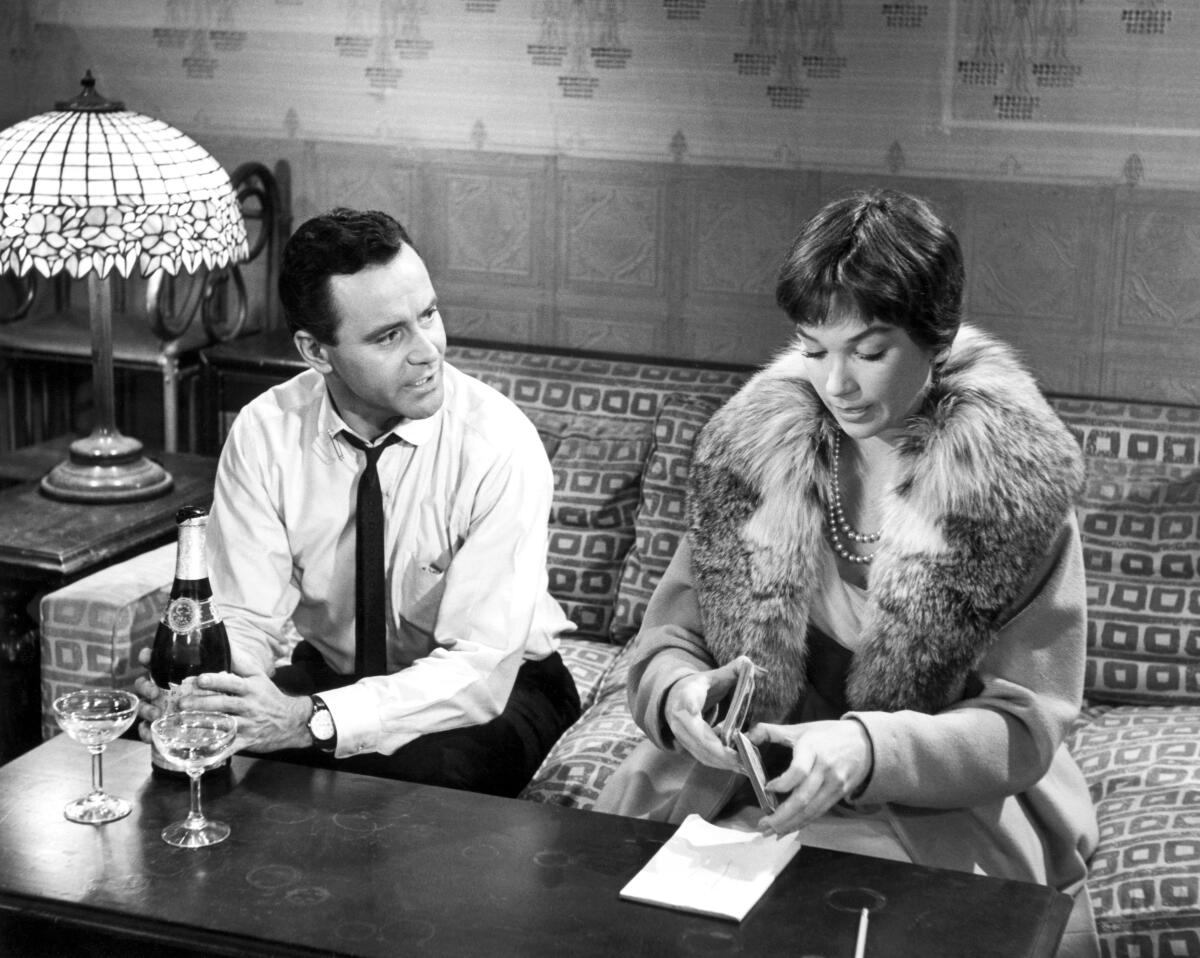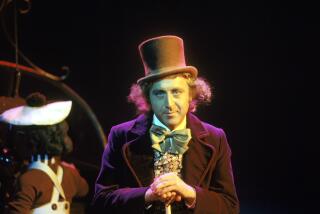From the Archives: ‘The Apartment’: Wilder touch brightens sly sex at high altitude

- Share via
By playing the most risqué situations with an air of innocent wonderment, writer-director Billy Wilder (“Love in the Afternoon,” “Witness for the Prosecution,’’ “Some Like It Hot”) gets away with just about everything but murder.
“The Apartment” is his latest. It is a comedy, though it is also, once you scratch the surface, a drama, as any such frank and searching commentary on the morals, or lack of them, in our time would almost have to be. For “The Apartment” is preoccupied with sex.
However, it never glories in it. And when the time comes for some of its practitioners to feel ashamed, they do.
Wilder’s directorial approach (he also wrote the screenplay with I.A.L. Diamond) to the subject is characteristically Viennese — which he was — or if you will, French. While that subject may be as distasteful as a sniggered joke, Wilder takes most of the curse off it by a very simple trick: He never permits his characters to do anything suggestive when they are saying something suggestive — and all of their actual sinning occurs offscreen.
Even so, it takes all the boyish charm that Jack Lemmon can summon — and he can summon plenty — to keep us from turning against him, especially as what he is up to becomes increasingly apparent.
For Jack, an ambitious clerk with a giant New York insurance firm, “earns” his promotions from the 19th to the 27th floor by lending his walk-up apartment in the West 60s to his bosses for their dates with their “office wives.” He doesn’t quite remember how he got into it — but there it is.
“That,” he shrugs helplessly, “is the way it crumbles, cookie-wise.”
Now, Jack has a crush on Shirley MacLaine, the girl who runs the elevator that takes him to the 19th (et seq.) floor. She is a nice girl and he worships the ground she so seldom walks on. The fifth executive to whom he supplies a key is a top — or at any rate 27th floor — executive. This is Fred MacMurray.
One night, after MacMurray has kept a tryst at the apartment, Lemmon finds a girl’s compact with its mirror cracked. He returns it to MacMurray.
And then, at the office Christmas party, Shirley lends him her compact so he can look at the silly new bowler he is sporting.
It is the same one.
Love Triumphs Over Slipshod Morals
Eventually, of course, Shirley and Jack find one another. After she has confessed, “I just have this talent for falling in love with the wrong guy — at the wrong place — at the wrong time.” And: “Some people take — and some get took.” And after she has taken an overdose of sleeping pills. And after Jack himself has looked in a few more mirrors and realized there is an ugly word for what he has been doing.
Wilder has elicited seriocomic playing of the highest skill from his three principals and exceptional types like Jack Kruschen as a kindly doctor, Hope Holiday as a barfly named Margie MacDougall and Edie Adams as MacMurray’s jealous secretary.
Perhaps most skillful of all is the balance he himself maintains with a ticklish subject, avoiding what I felt were the excesses of “Some Like It Hot.” Lemmon’s frustrating bout with a television set on which he is waiting to watch “Grand Hotel” is alone, as we say, worth the price of admission.
More to Read
Only good movies
Get the Indie Focus newsletter, Mark Olsen's weekly guide to the world of cinema.
You may occasionally receive promotional content from the Los Angeles Times.









